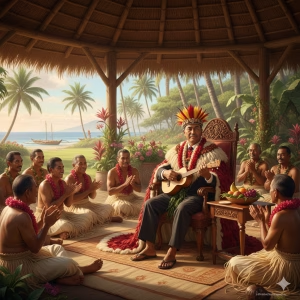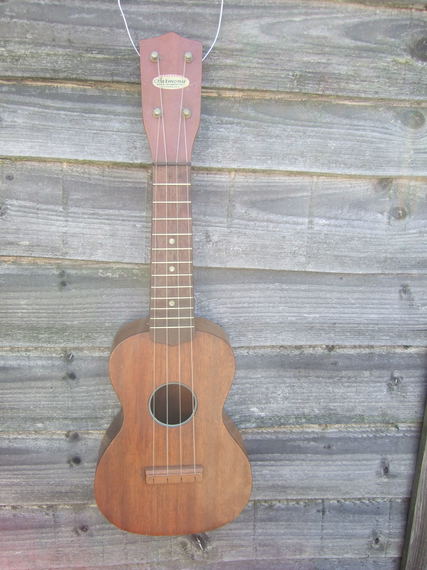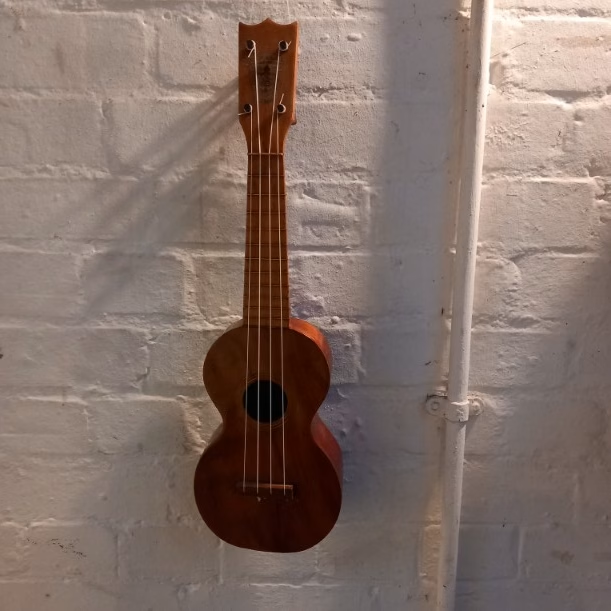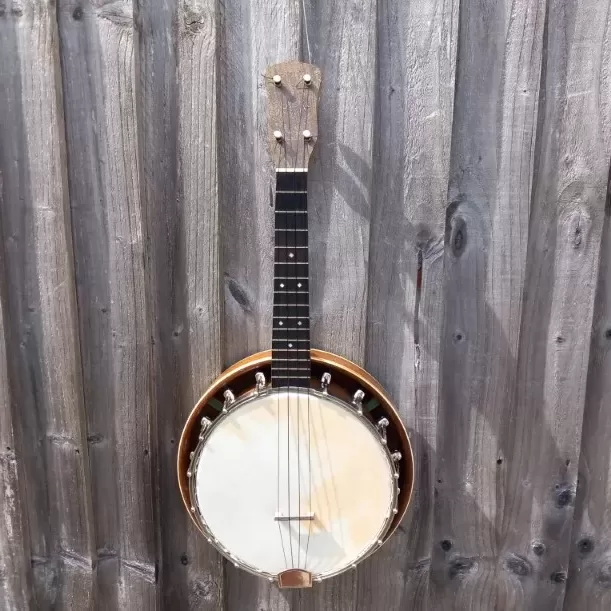The ukulele’s history begins in the 1880s in Hawaii, but its roots are in Madeira, Portugal.  It was introduced to the islands by Portuguese immigrants who arrived to work on the sugar cane plantations, bringing with them a small, four-stringed instrument called the machete de Braga or braguinha. Local Hawaiian woodworkers, including Manuel Nunes, Augusto Dias, and José do Espírito Santo, adapted and began producing the instrument, which quickly found favor, especially under the patronage of King David Kalākaua, who promoted it in royal performances. Hawaiians named the instrument “ukulele,” which translates roughly to “jumping flea,” likely a reference to the swift movement of a player’s fingers. The ukulele was introduced to mainland America at the Panama-Pacific International Exposition in San Francisco in 1915 and has since gone through several resurgences in global popularity, becoming a beloved and easily recognizable symbol of Hawaiian music and culture.
It was introduced to the islands by Portuguese immigrants who arrived to work on the sugar cane plantations, bringing with them a small, four-stringed instrument called the machete de Braga or braguinha. Local Hawaiian woodworkers, including Manuel Nunes, Augusto Dias, and José do Espírito Santo, adapted and began producing the instrument, which quickly found favor, especially under the patronage of King David Kalākaua, who promoted it in royal performances. Hawaiians named the instrument “ukulele,” which translates roughly to “jumping flea,” likely a reference to the swift movement of a player’s fingers. The ukulele was introduced to mainland America at the Panama-Pacific International Exposition in San Francisco in 1915 and has since gone through several resurgences in global popularity, becoming a beloved and easily recognizable symbol of Hawaiian music and culture.



